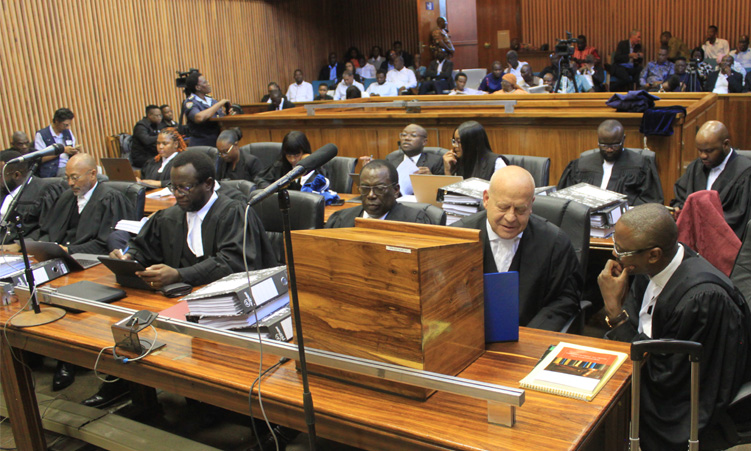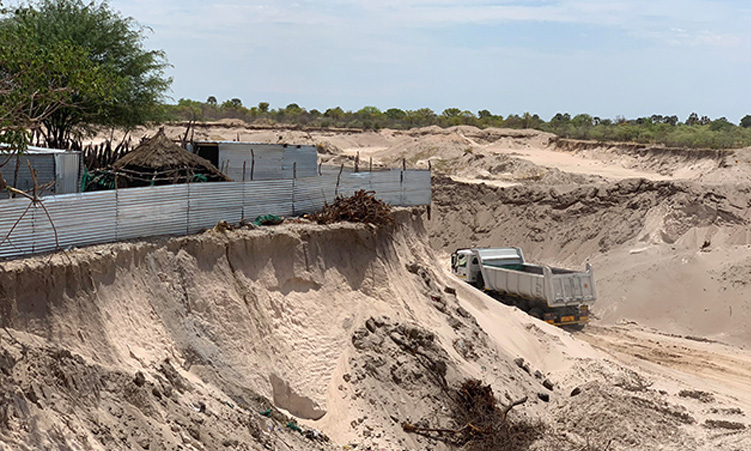EXTREME hardship awaits Namibians if a recession hits the country, with the floods in the northern regions and the drought in the east crippling the economy further, jeopardising even more jobs.
Economists agree: unemployment is the single biggest threat the average Namibian will face during a recession.
Hand in hand with that are a bigger financial burden, loss of possessions, a drastic change in lifestyle, as well as a whole spectrum of other social and welfare problems.
‘Different income groups will feel the impact of a recession differently,’ said Dr Omu Kakujaha-Matunda, Deputy Dean of Economics and Management at the University of Namibia (Unam).
One thing, however, is for sure: ‘It is not going to be easy in the coming months.’
Dr Kakujaha-Matunda agrees with the grim economic predictions by the Bank of Namibia (BoN) and Old Mutual Group Economist Robin Sherbourne earlier this week.
The central bank warned that Namibia’s economy will probably only grow by 0,4 per cent in 2009, significantly lower than the 1,1 per cent it still expected in February, adding that the figure might even be lowered later in the year. Sherbourne predicted growth of minus 1,6 per cent for the year.
‘I think we are almost there or we are in recession already,’ Dr Kakujaha-Matunda, also a member of the BoN Board, said.
The main avenue through which a recession hits households is through job losses, with companies closing or declaring production holidays like Namdeb. This will hit low-income households particularly hard, he said.
A Namibian low-income worker usually supports an extended family. Losing his or her job could affect up to 20 people, according to Dr Kakujaha-Matunda.
‘Besides suffering from the lack of basic necessities like kids having to drop out of school, and water and electricity bills which go unpaid, stress levels will increase,’ he said.
As a result tension will mount because of money worries, which could result in the physical abuse of children and spouses. In extreme cases, a truly desperate person might even consider suicide, if not committing it, Kakujaha-Matunda said.
Namibians in the middle- to high-income groups who lose their jobs, especially the younger ones, will struggle to repay their mortgage loans and hire-purchase agreements for cars.
‘Thus chances of them losing their cars and houses become a reality,’ according to Dr Kakujaha-Matunda.
Other hardships will soon follow – a change of neighbourhood, children attending poorer schools, as well as the tension, abuse and desperation that the low-income workers suffer.
‘Crime of all sorts can also increase and a general feeling of malaise will lead to a sad nation,’ he added.
Dr Kakujaha-Matunda stressed that most families in Namibia have strong rural-urban relationships, which is mutually supportive. Both rural and urban areas will be hit in a recession.
However, the situation will be compounded by the floods in the North that devastated crops and the drought in the east that will hit the livestock sector, he said.
‘So instead of urban families relying on their rural kinsman, there could be a rural-urban migration as those hit by floods and drought will be attracted by the not-so-bright lights of the city,’ he predicted.
Daniel Motinga, Senior Manager of Research and Development at FNB Namibia, agreed that a job will be worth its weight in gold during a recession.
‘If you have a job, take care and work hard,’ he advised.
Motinga maintained that the key challenge for the Namibian economy is the disconnection between growth and job creation.
‘We simply have not been able to overcome this. Even when the economy was growing, not sufficient jobs were created,’ he said.
jo-mare@namibian.com.na
Stay informed with The Namibian – your source for credible journalism. Get in-depth reporting and opinions for
only N$85 a month. Invest in journalism, invest in democracy –
Subscribe Now!









